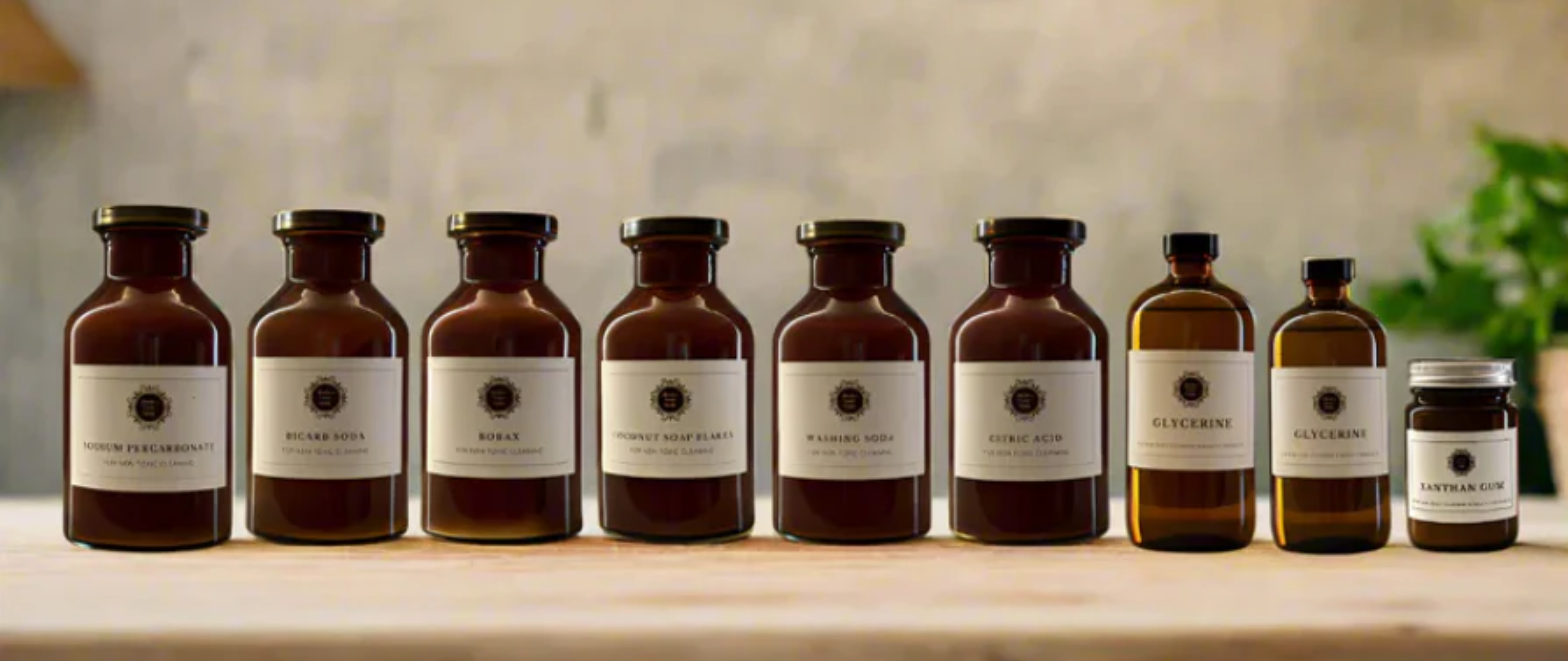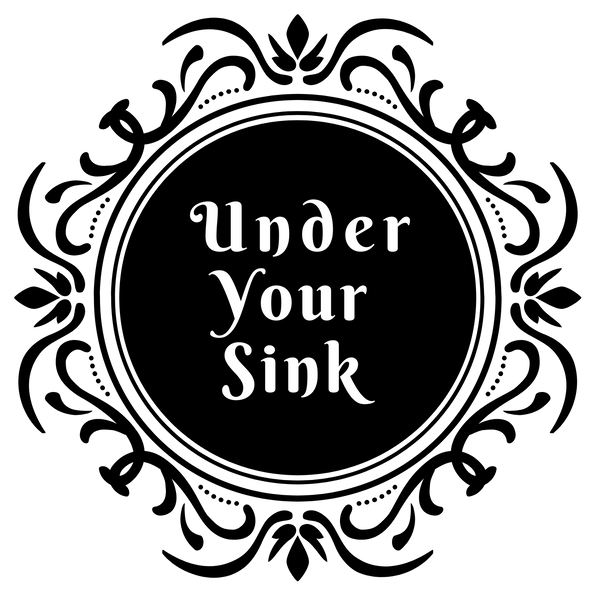Coconut Soap Flakes (Organic)
Coconut Soap Flakes (Organic)
Couldn't load pickup availability
Ever grated a soap bar for a DIY recipe? Not fun! It’s hard to find a pure coconut soap bar in the first place and when you do, they’re rock solid and not super cheap. Coconut soap is much harder than your typical body bar, and grating it takes serious elbow grease. This takes the hassle out completely. It’s already grated for you, made purely from 100% organic coconut oil, and designed specifically for cleaning.
The What & Why
The What & Why
What is it?
This is 100% pure soap, nothing more, nothing less. However if you want to get technical, its classified as a surfactant, which is a hugely important function of cleaning. It traps dirt in a micelle that gets pulled away when you rinse.
Made from only 3 ingredients: Organic coconut oil, water and lye (sodium hydroxide). Note: Once the saponification process is complete, all the lye has reacted with the oils and there is no lye left in the final soap.
Why it's in the toolkit?
So I did not have to find and grate a soap bar for my DIY recipes! Soap cleans and has single handed been the main preventative of disease worldwide. Wash your hands with soap they say, but you can actually use it anywhere there is a need to clean. It also plays a very important function in cleaning called a surfactant, which you can learn more about below.
Your Packaging Choices
Your Packaging Choices
Hi, I'm Analisa the order packer. I pack everything fresh to order, and you have two options for how it arrives:
1. Apothecary Jar: It’s a wide-mouth jar made from recycled glass with a tinted amber look (not pure amber, but still charming). The lid even fits roughly a tablespoon, so it’s handy for scooping. Looks good on the bench and keeps your soap airtight and ready to go.
2. Earth Bag: A compostable option made from kraft paper with a plant-based inner lining. Great for transport and low waste, but not ideal for long-term storage. Just transfer it to a sealed container when it arrives - glass is best.
Whichever you choose, just keep it dry, sealed, and out of reach from little hands.
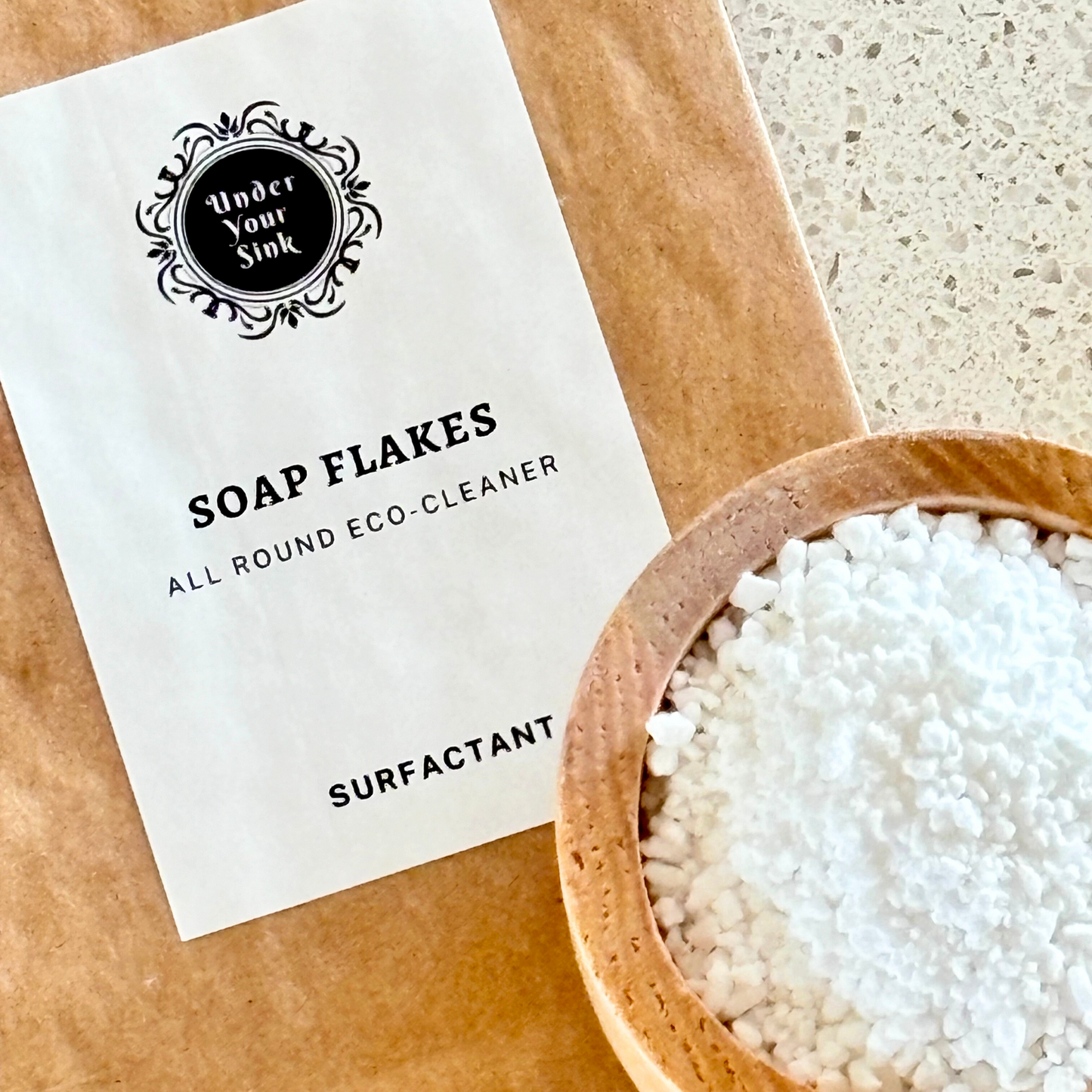
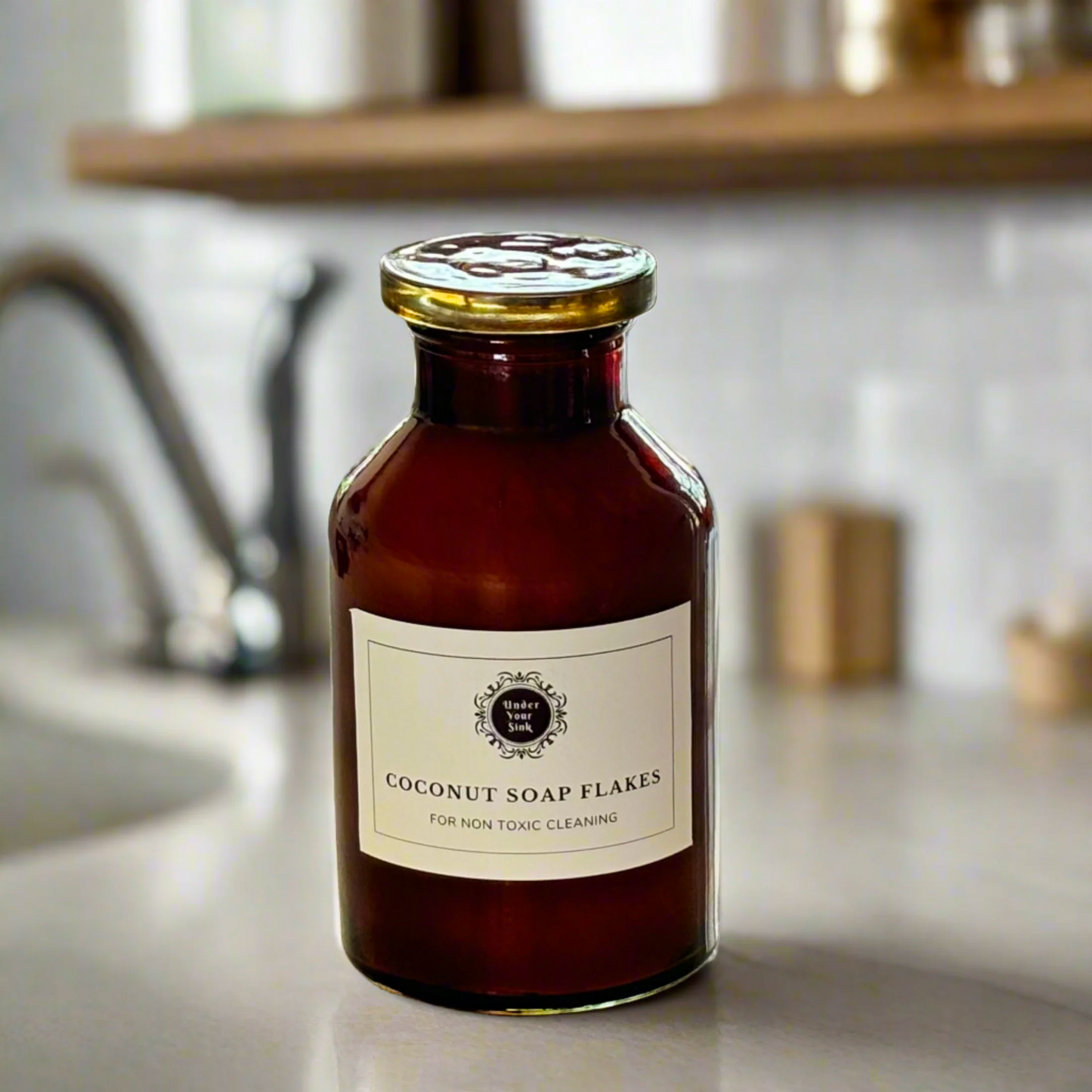
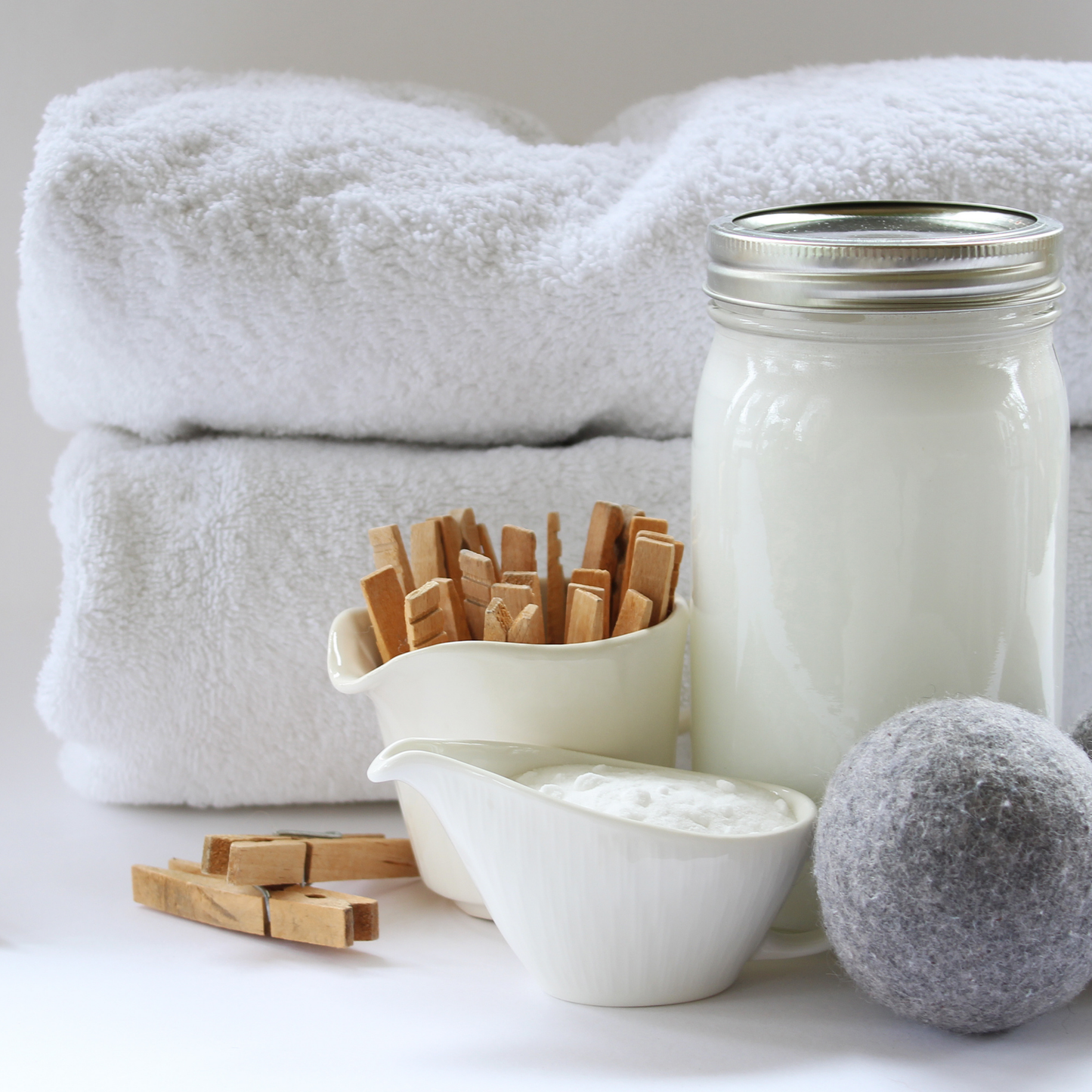
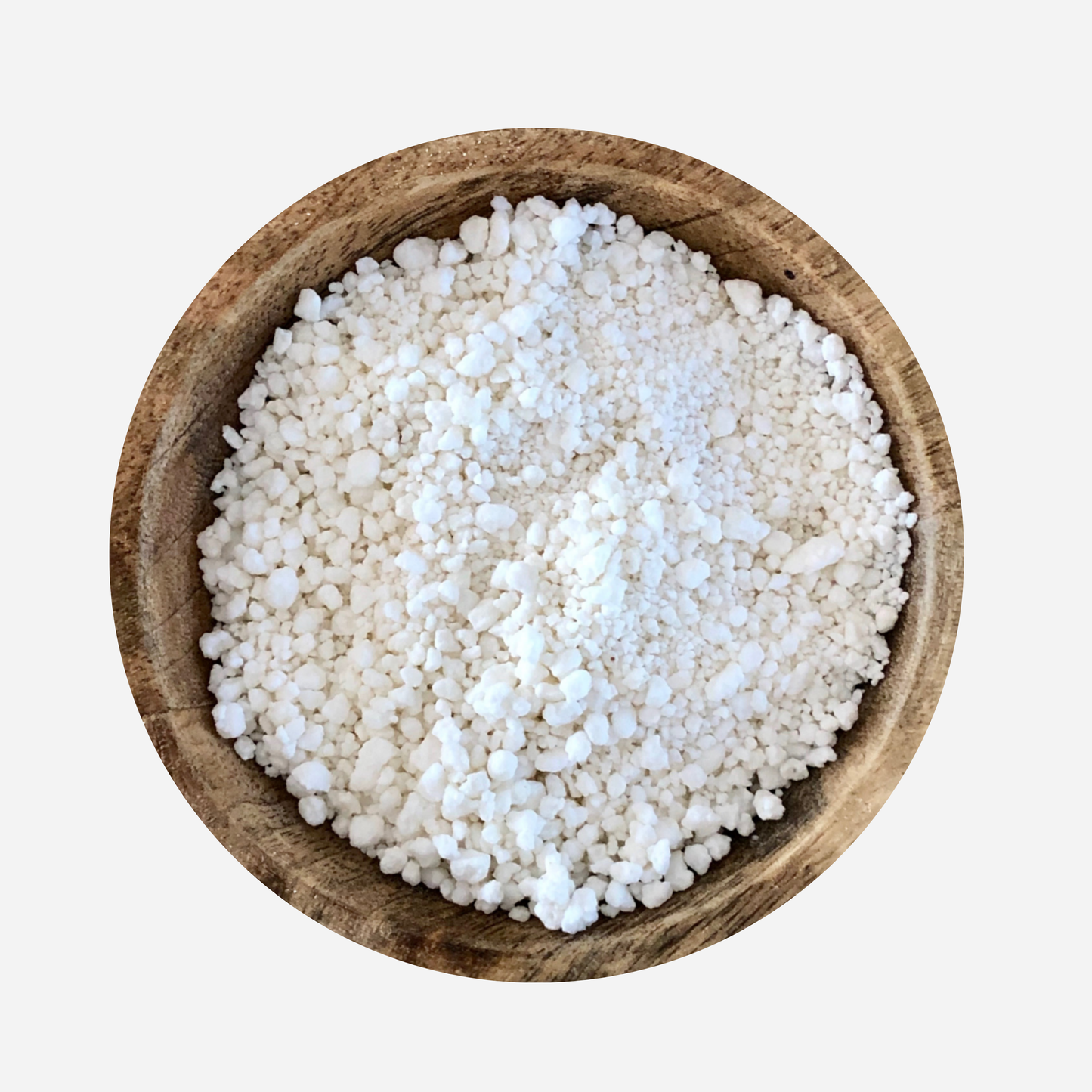
Enjoy 15% Off
When you bundle any 4 ingredients. Discount will be applied at checkout.
Collapsible content
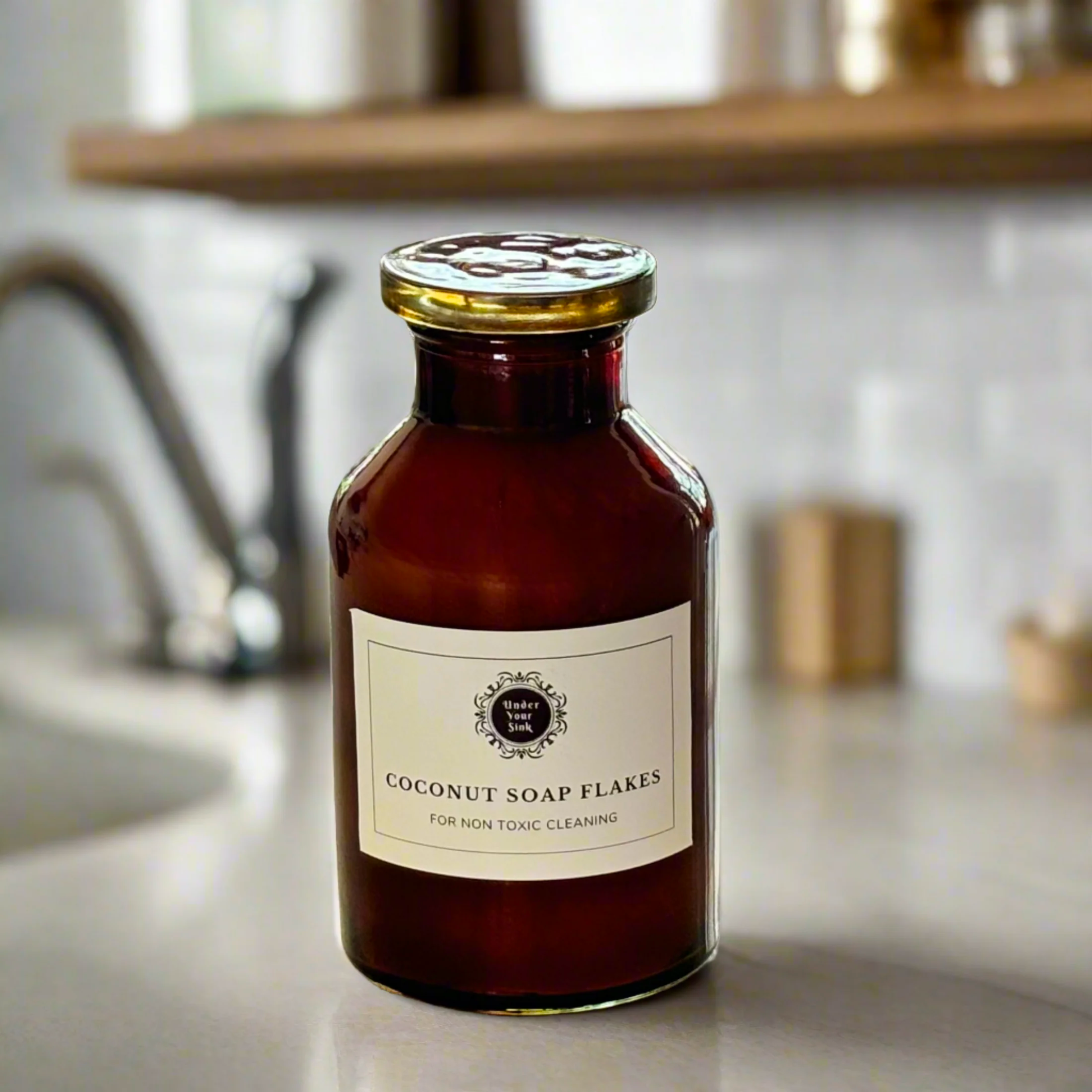
Dig deeper into this ingredient
A true soap can only be made through the saponification process. If saponification does not occur, it ain't soap! Saponification occurs by mixing fats or oils with an super strong alkali - lye (sodium hydroxide or potassium hydroxide). This part went way over my head, as I do not have a science degree, but the chemical reaction between these components transforms them into soap molecules and glycerine. Yes glycerine!!
True soap is biodegradable and breaks down easily in the environment. It's does not have all the synthetic detergents, fragrances, and additives commonly found in commercial cleansers.
The pH is around the 8-9 mark, which means is alkali (so don't mix with vinegar or Citric acid ok!) - neutral pH is 7.
One other thing I would love to share about soap, it's how it actually cleans. It fascinates me. A surfactant breaks the surface tension of water - what the? Imagine a drop of water of a surface and you tap it with you finger and it expands out and the area it wets a larger area. Surfactants essentially making water wetter! Not only that, it releases the, what I call 'tadpoles' (disclaimer: i made up that technical term) as they reminded me of a tadpole, with one water loving end and the other end, water hating!
The water hating end, hides away as close as it can to dirt molecules so it has less contact with the water. All the little tadpoles do that until they form a complete ring around the dirt. Then when you rinse, the water loving ends take charge and pulls towards the water, taking the dirt along with it. Hence the importance of rinsing!!
Want more, have a read of this blog: About surfactants
DIY recipes & ways to use It
Firstly I want to start of by saying, pure coconut soap can be a little drying for the skin, keep it to your cleaning products.
I use these soap flakes in my laundry powder and cleaning paste recipes. However, its sits in a jar under the kitchen sink too. I can sprinkle some into the sink for dish washing, even mould it into a little bar for my soap swisher cage.
You can dilute it in warm water and have a soapy solution to clean windows, walls or anything that needs a gentle clean.
Eco-friendly credentials
Soap and detergent are not the same thing! While both human made, soap is much for eco-friendly and has lasted the test of time. Learn more about the difference between soap and detergent in this blog, it also goes int more detail about the environmental benefits. Soap V Detergent
Safety & handling tips
Just be careful when opening the container not the breathe in the raised dust. Also do not eat it or rub it in your eyes. Also not suitable for washing someones mouth out!
Common myths or confusions
"Soap and detergent are the same thing"
The terms are used interchangeably however they are not the same at all. Soap is made from oils and fats and detergents are made from synthetic chemicals. Soap is a much more eco-friendly solution.
"I can dilute hard soap to make liquid soap"
Sorry, not possible! Both a hard and liquid soap require lye (a super strong alkali) for the saponification process to occur but different types. Liquid soap uses potassium hydroxide while hard soap used sodium hydroxide - this means the hard soap will always try and get hard again. When you dilute a hard soap you have soapy water, not liquid soap.

Clean on Your Terms
With DIY, you have full control over every ingredient. That means fewer chemicals in your home, less demand for their production, and a cleaner planet in the process.

One Ingredient. Endless Uses.
Ingredients that work on their own and play well together too! It's all about versatility, every product is multi-purpose and can be used across different cleaning tasks.

Full green approach
All ingredients are biodegradable, plastic-free, vegan, and fragrance free - better for your home, your health, and the planet. Sourced with care and packaged responsibly (and with love) they help cut down on waste and reduce pollution.

Clean on Your Terms
With DIY, you have full control over every ingredient. That means fewer chemicals in your home, less demand for their production, and a cleaner planet in the process.

One Ingredient. Endless Uses.
Ingredients that work on their own and play well together too! It's all about versatility, every product is multi-purpose and can be used across different cleaning tasks.

Full green approach
All ingredients are biodegradable, plastic-free, vegan, and fragrance free - better for your home, your health, and the planet. Sourced with care and packaged responsibly (and with love) they help cut down on waste and reduce pollution.
I use these soap flakes for all of the recipes from the “under your sink” website. Analisa researches her products for quality, affordable and sustainable.
Excellent ingredient for under the Sink recipes.
Great product! This is an absolute must have for anyone who likes to DIY their own cleaning products.
I love how Analisa at UYS sources products sustainably, packages them in low wastage options and is so passionate about showing people how to DIY naturally at home!
I buy all my bulk DIY products here - would never go anywhere else!
Fantastic Service and Products
Fantastic
Join the Tribe & Get the Good Stuff
Pop your email in and I’ll send you my free quick-start guide to DIY green cleaning. You’ll also get a little discount code as a thank you!
